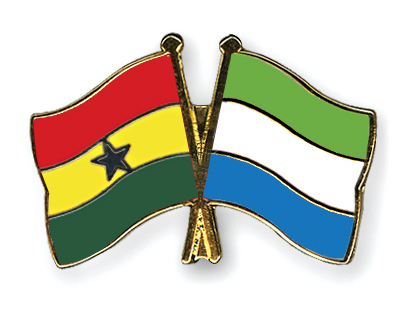Sierra Leone’s central bank recently concluded a strategic learning mission to Ghana to draw insights from the country’s advanced digital payment ecosystem. With over 80 percent of its population currently excluded from formal financial services, Sierra Leone aims to transform its digital payments landscape to accelerate economic development and broaden financial inclusion across urban and rural populations.
The visit highlighted the critical impact that Ghana’s interoperable and instant payment platforms have had on economic activity and government revenue, offering a valuable model to adapt for Sierra Leone’s national reforms.
Unlocking economic potential through digital payments
Ghana’s experience demonstrates how digital finance can directly boost economic opportunities and government savings.
Ghana’s Ministry of Finance and the UN-based Better Than Cash Alliance reported that almost 100 percent of government payments are now digitized, translating into estimated savings of over $230 million in 2020 alone.
Mobile money transactions in Ghana have surged remarkably; GhIPSS Instant Pay recorded a 50.8% rise in transaction volumes with a 104.6% increase in transaction values.
This digital shift has fostered vibrant small business ecosystems, expanded jobs, and enhanced financial transparency.
Sierra Leone hopes to replicate such economic and social benefits, which could generate new income streams and reduce reliance on cash, especially in underserved areas.
Learning governance and interoperability for inclusion
The Bank of Sierra Leone delegation delved into Ghana’s governance models, focusing on how GhIPSS—a subsidiary of the Bank of Ghana—manages interoperable payment systems enabling instant settlement across banks and mobile money platforms.
The visit underscored the power of cross-border knowledge sharing to build robust, diversified digital payment ecosystems.
Clara B. Arthur, CEO of GhIPSS, emphasized the initiative: “The engagement between Ghana and Sierra Leone offers a unique opportunity to explore how we can build more robust, diversified, and interoperable payment ecosystems.”
Sierra Leone intends to adapt these governance structures to increase trust and accessibility, particularly reaching rural populations often ignored by financial institutions clustered in cities.
Catalysing regional integration and financial system modernization
This collaboration aligns with Sierra Leone’s Second National Financial Inclusion Strategy (2023–2026) and broader ambitions to modernize payment infrastructure and reduce cash dependency. Insights from Ghana could inform reforms that extend secure, affordable financial services nationwide and spur regional harmonisation of payment platforms across West Africa.
Such integration promises to boost economic connectivity and trade while fostering entrepreneurship and innovation. As digital ecosystems grow, countries like Sierra Leone stand to benefit from increased government revenues, enhanced economic resilience, and inclusive growth empowered by technology.
This partnership symbolizes the growing trend of African nations leveraging shared expertise to accelerate digital transformation with profound socio-economic impact.
At a crucial moment for Sierra Leone’s digital finance evolution, learning from Ghana’s success provides a clear roadmap to harness digital payment systems as engines for economic development, financial inclusion, and regional cohesion across West Africa.

















